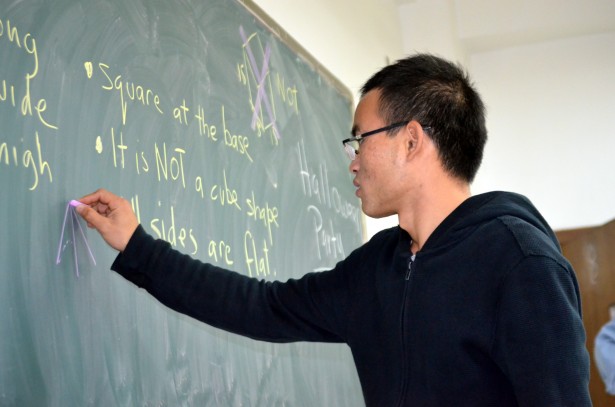From The Educate a Child Toolkit

If you are a Presbyterian and reading this, you are someone who appreciates education. People in the Reformed tradition have always affirmed the value of education and its potential to transform lives and systems. Beginning with John Calvin and continuing with later Reformers and numerous General Assembly actions, Presbyterians have long considered public education essential – first of all, so that the general population might be literate and thus able to read the Bible for themselves – and that they might read with understanding.
Walk in to any Presbyterian church, and there is an excellent chance you will find a day care center, a tutoring program, a mentoring program, or an after school program. There is always room for children in our churches. We are reminded that God broke into human history as a vulnerable, fragile, and helpless baby in a land that was not his own. Our theology of the incarnation compels us to advocate for children. We may wonder if Jesus was thinking of the circumstances of his own birth when we read in Matthew’s Gospel:
“At that time the disciples came to Jesus and asked ‘Who is the greatest in the kingdom of heaven?’ He called a child, whom he put among them, and said, ‘Truly I tell you, unless you change and become like children, you will never enter the kingdom of heaven. Whoever becomes humble like this child is the greatest in the kingdom of heaven. Whoever welcomes one such child in my name welcomes me. If any of you put a stumbling block before one of these little ones who believe in me, it would be better for you if a millstone were fastened around your neck and you were drowned in the depth of the sea.” (Matthew 18:1-6)
The strong words of Jesus remind us and compel us, as God’s household of faith, to engage in the ministry of child advocacy. The welfare of the whole people of God begins with how we care for the children. Everyone’s children.
The role of public schools must be consistently maintained for the good of the whole community. Quality public education gives us the best chance to empower the most students to embrace an abundant life in community. In 1987, the reunited Presbyterian Church (U.S.A.) adopted A Call to Church Involvement in the Renewal of Public Education, calling Presbyterians “to join others in their communities – to provide schools that will secure for all children an education that develops their capacities to serve as creative and responsible persons in the common life and – to mobilize the resources available in each community – home, church, community organizations (both public and private) – that will support public schools and share in achieving the necessary education of children and youth” (Minutes Part I, pp. 479-80). The Presbyterian Church (U.S.A.)’s Office of Public Witness in Washington, DC (pcusa.org/Washington), in alignment with our education policy statements, works to give voice to Presbyterian values as they regard public policy.
Presbyterians take education very seriously. We hope you will find this toolkit to be helpful as you follow Christ’s call to this ministry. You will find ideas, materials, resources, and examples that will assist you and your congregation as you continue to engage in the work of public education and child advocacy. Thank you for your commitment to this ministry.